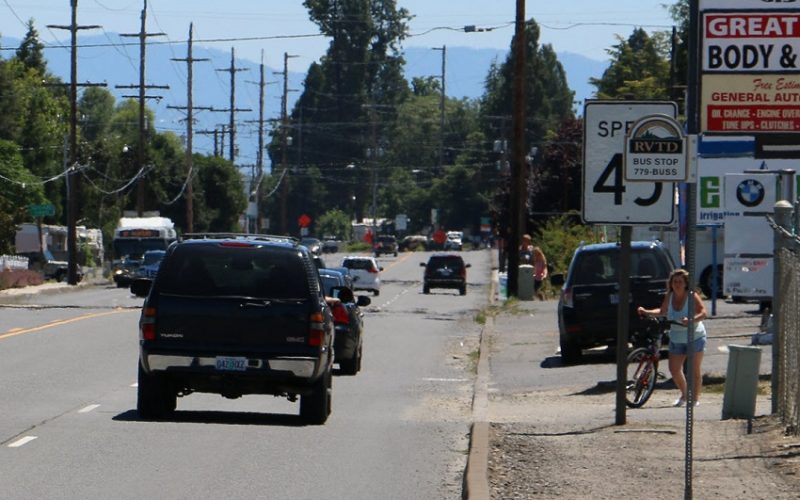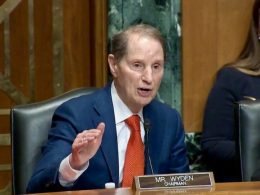Salem, OR – Oregon lawmakers have unveiled a comprehensive proposal aimed at addressing the state’s growing transportation funding deficit, which has been exacerbated by declining gas tax revenues, inflation, and rising maintenance costs. The plan, presented by Senator Chris Gorsek (D-Troutdale) and Representative Susan McLain (D-Forest Grove), seeks to raise at least $1.9 billion in additional revenue over the next two-year budget cycle for the State Highway Fund, Oregon’s primary source of transportation funding.
The proposal comes after nearly two years of statewide meetings and a tour to gather input from residents about their transportation needs. As Oregon’s transportation departments struggle to maintain basic services such as road repairs and snow removal, lawmakers are proposing several new fees and taxes to fill the growing funding gap.
One of the central elements of the plan is a significant increase in the state’s gas tax. The proposal calls for raising Oregon’s current 40-cent per gallon gas tax to 60 cents by 2032, with incremental increases each year. By January 2026, the gas tax would jump to 48 cents, followed by 4-cent increases every two years until 2032.
In addition to the gas tax hike, the plan includes a $66 increase in vehicle registration fees, which currently range from $126 to $156 every two years. Vehicle title fees, which typically cost between $101 and $116, would rise by $90. Electric vehicles (EVs), which currently pay higher fees than traditional gas-powered vehicles, would see a reduction in registration costs, provided they enroll in Oregon’s road usage charge program, OReGO. The program, currently voluntary, would become mandatory for all EVs by 2029.
The proposal also introduces a new one-time 1% fee on vehicle sales, a tax that Oregon is one of only five states without. This fee would help generate additional funds for transportation infrastructure.
Another significant aspect of the plan is an increase in the payroll tax dedicated to funding public transit. The current 0.1% payroll tax would nearly double to 0.18%, raising an additional $268.6 million every two years. The proposal also includes a 3% tax on tire sales, expected to bring in $50 million per biennium for projects such as rail development, wildlife crossings, and salmon restoration.
Bicycles priced at $200 or more would see an increase in tax from $15 to $24.50 per bike, generating $1 million per budget cycle for local bike paths and trails.
While the proposal aims to generate substantial revenue, lawmakers are also sensitive to the economic pressures faced by Oregonians. “We’re very conscientious about the cost of living,” McLain said, acknowledging the economic strain on households. “But it also costs money to do nothing.”
The transportation funding crisis in Oregon has been years in the making, as traditional sources of funding, such as gas tax revenues, have dwindled due to declining fuel consumption and the rise of electric vehicles. According to the Oregon Department of Transportation (ODOT), the state is facing a deficit of more than $350 million, with warnings that without additional revenue, the agency may need to lay off employees and delay critical services like snow removal and pothole repairs.
Senator Gorsek emphasized that the proposal is part of a long-term strategy to stabilize transportation funding. “It’s a big picture thing where we’re resetting everything,” he said, noting that the increases would be phased in gradually to avoid overwhelming taxpayers.
Despite some initial concerns over the economic impact of these new taxes and fees, Gorsek and McLain are confident that Oregonians will understand the need for these measures to maintain the state’s infrastructure. “This isn’t just about Portland,” Gorsek explained. “This is about the entire West Coast, and the economic impacts of not addressing the bottlenecks in Portland would be severe.”
Though tolling was not included in the proposal—due in part to a 2026 moratorium ordered by Governor Tina Kotek—the possibility of future tolls remains open. Tolls had been part of earlier plans to fund transportation improvements but have been politically contentious in Oregon.
The proposal is expected to be refined over the coming months as the Oregon Legislature works to address the state’s transportation needs. Lawmakers are hopeful that with adequate funding, they can avoid a future where the state’s transportation system continues to deteriorate, leaving Oregonians to face worsening congestion and aging infrastructure.











